Discover the best large indoor potted plants to transform your space. Learn about care tips, benefits, and how to choose the right plant for your home or office environment.
Large indoor potted plants can dramatically transform any interior space, bringing a touch of nature’s grandeur into your home or office. These statement pieces not only enhance the aesthetic appeal of a room but also offer numerous benefits for your well-being. In this comprehensive guide, we’ll explore the best large indoor plants, their care requirements, and how to incorporate them into your space effectively.
Benefits of Large Indoor Potted Plants
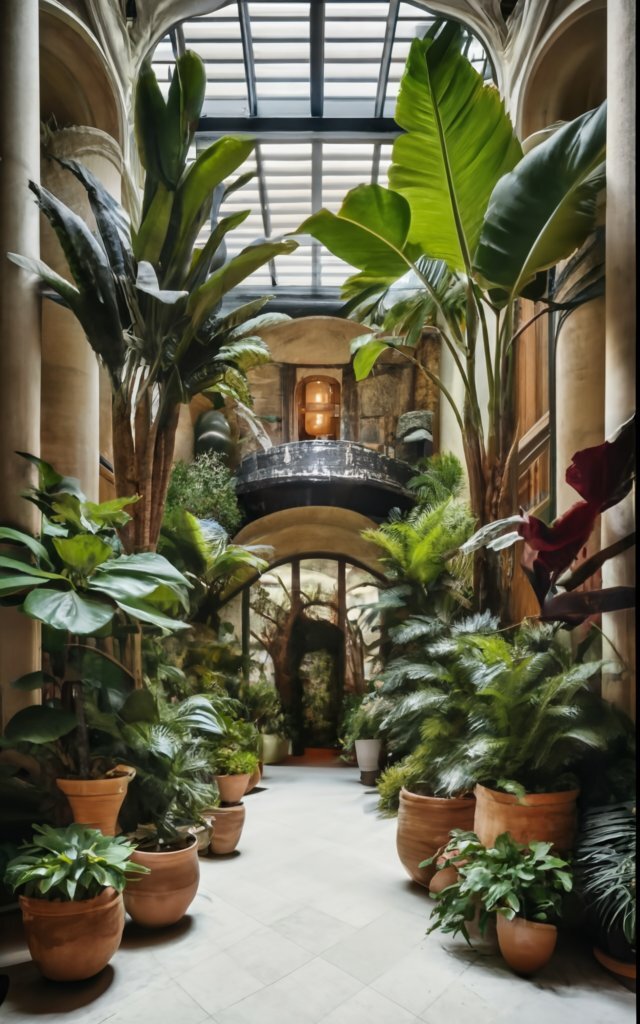
Large indoor plants offer several advantages:
- Air purification: Many large plants are excellent at removing indoor air pollutants.
- Improved humidity: Plants release moisture into the air, benefiting your skin and respiratory health.
- Stress reduction: Studies show that indoor plants can reduce stress and increase productivity.
- Aesthetic appeal: Large plants create a dramatic visual impact in any space.
Top Large Indoor Potted Plants
1. Fiddle Leaf Fig (Ficus lyrata)
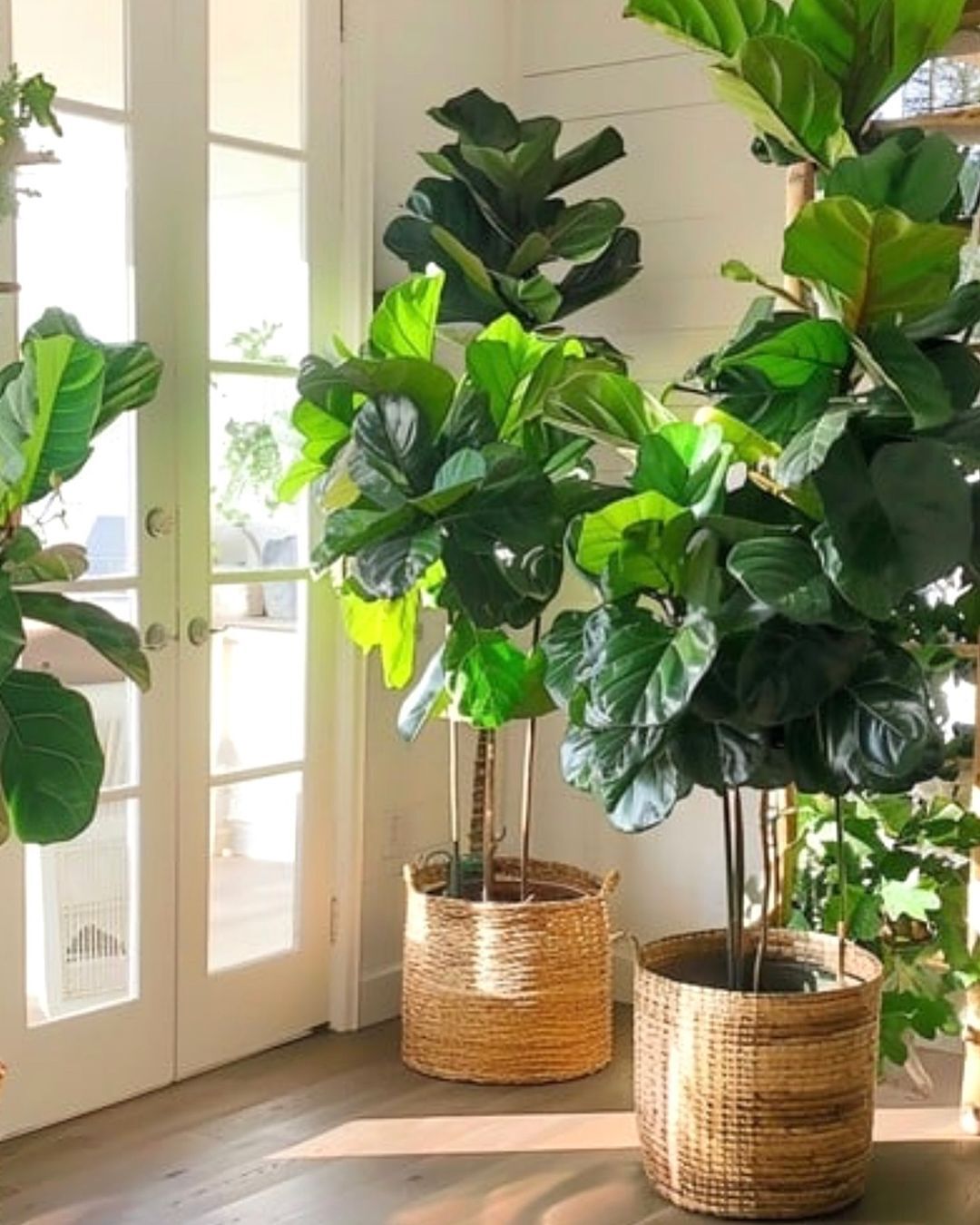
- Distinctive large, violin-shaped leaves
- Prefers bright, indirect light
- Can grow up to 10 feet tall indoors
2. Rubber Plant (Ficus elastica)
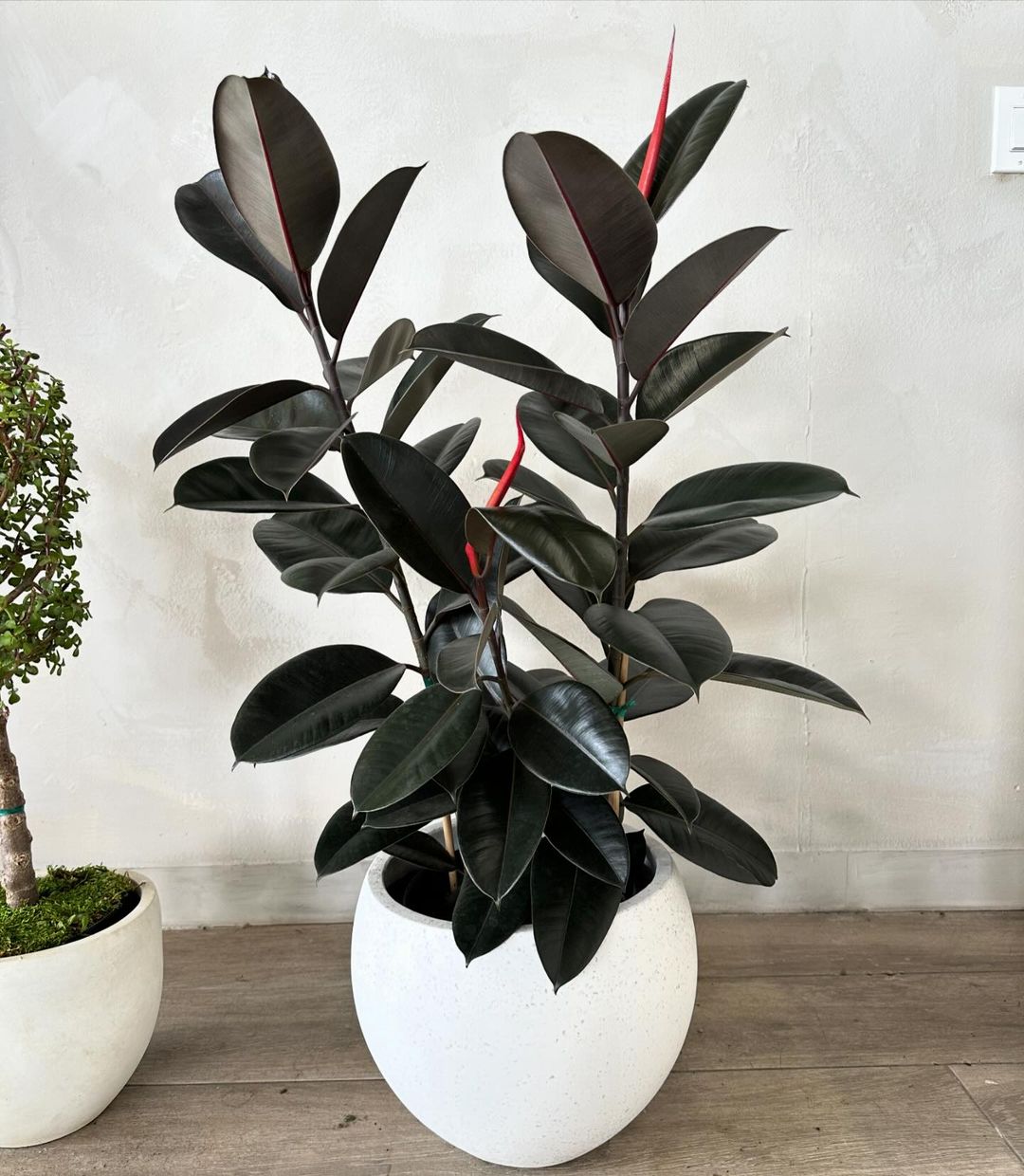
- Large, glossy leaves
- Tolerates lower light conditions
- Available in green, burgundy, or variegated varieties
3. Bird of Paradise (Strelitzia nicolai)
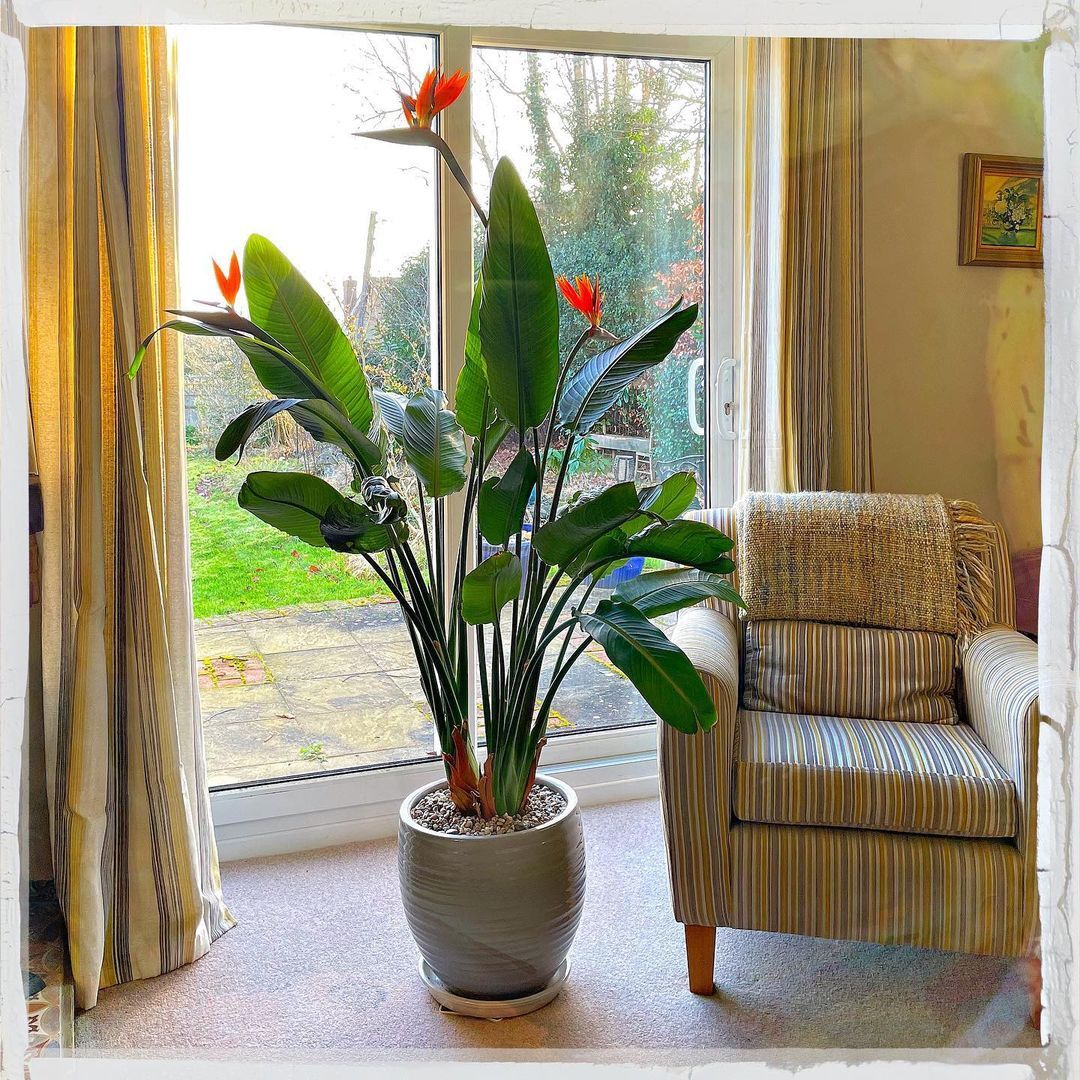
- Large, banana-like leaves
- Needs bright light to thrive
- Can produce spectacular flowers in ideal conditions
4. Monstera Deliciosa (Swiss Cheese Plant)
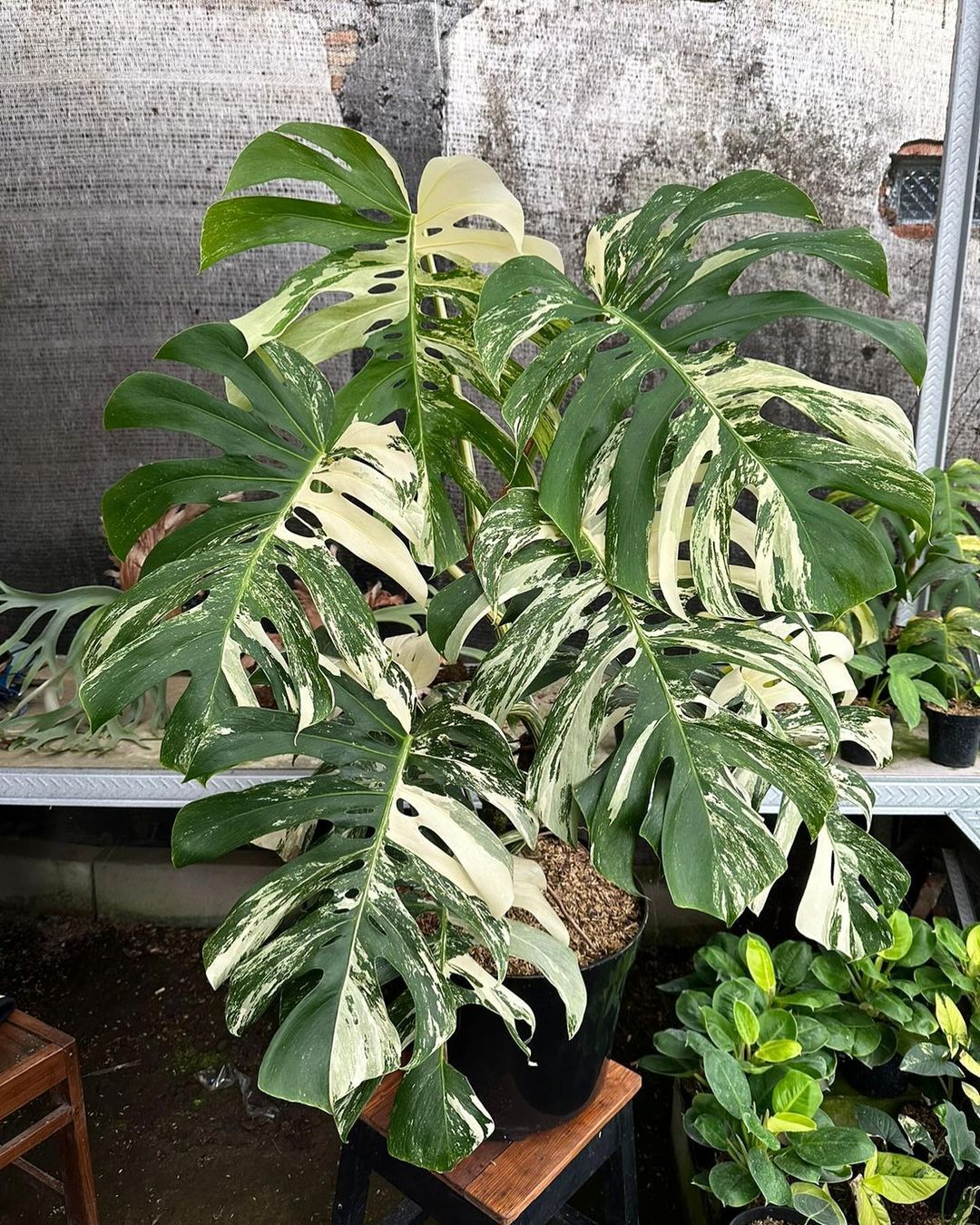
- Unique, split leaves with natural holes
- Adapts well to various light conditions
- Fast-growing and can reach impressive sizes
5. Dracaena Marginata (Dragon Tree)
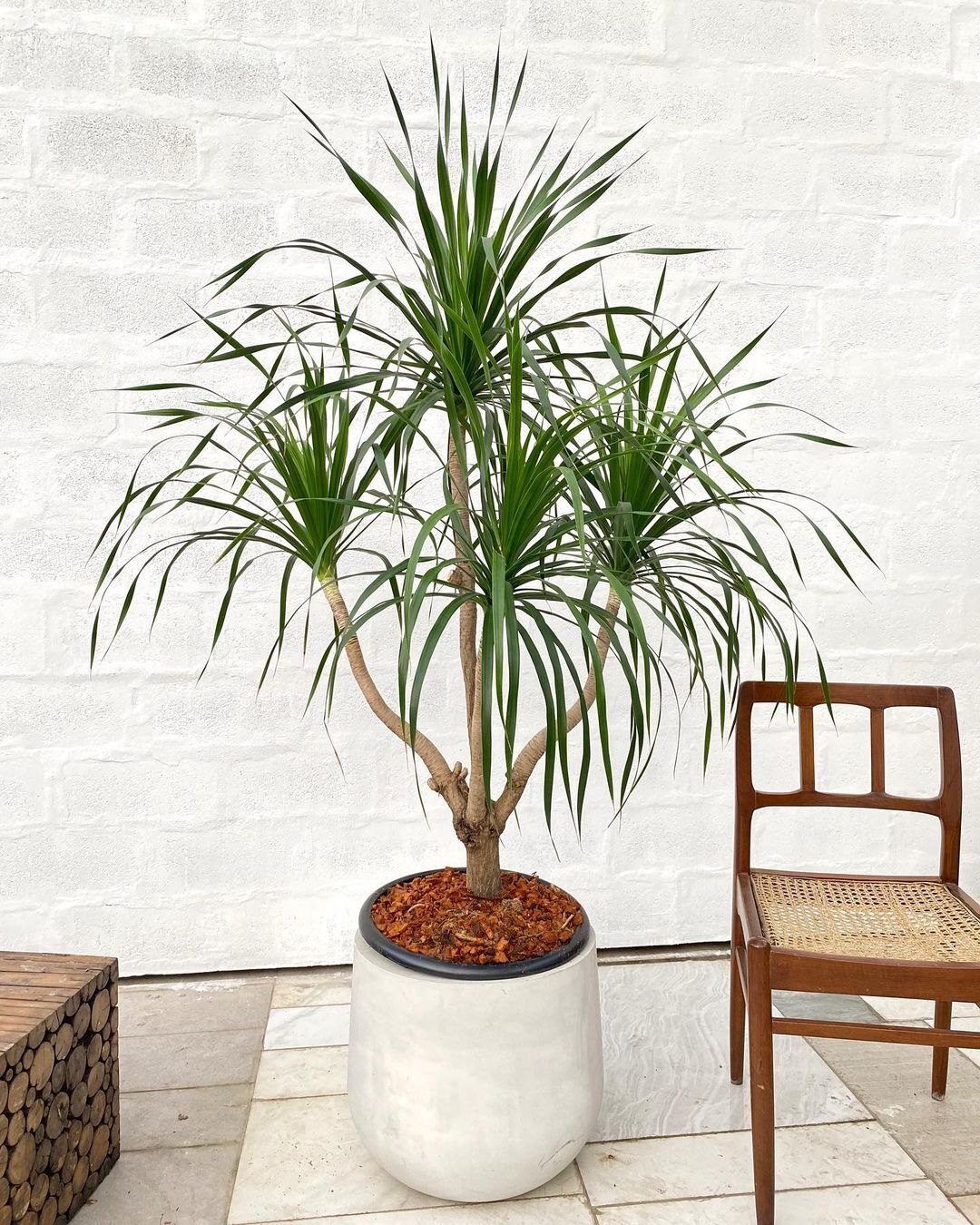
- Slender stems with long, narrow leaves
- Very tolerant of low light and neglect
- Can grow up to 6 feet tall or more
Choosing the Right Large Indoor Plant
Consider these factors when selecting a large indoor plant:
- Light conditions in your space
- Available floor space
- Your ability to provide care (watering, pruning, etc.)
- Indoor temperature and humidity levels
- Pet safety, if you have animals at home
Caring for Large Indoor Potted Plants
Watering
- Most large indoor plants prefer to dry out slightly between waterings.
- Use the finger test: stick your finger about 2 inches into the soil. If it’s dry, it’s time to water.
- Ensure pots have drainage holes to prevent water-logging.
Light
- Most large plants prefer bright, indirect light.
- Rotate plants regularly to ensure even growth.
- Some plants may need supplemental grow lights in low-light environments.
Fertilizing
- Feed your plants during the growing season (spring and summer) with a balanced, water-soluble fertilizer.
- Follow package instructions for dosage.
Pruning and Cleaning
- Regularly remove dead or yellowing leaves.
- Dust leaves with a damp cloth to keep them clean and healthy.
- Prune as needed to maintain desired shape and size.
Repotting
- Most large plants need repotting every 2-3 years.
- Choose a pot that’s 2-3 inches larger in diameter than the current one.
- Use well-draining potting soil designed for indoor plants.
Styling with Large Indoor Potted Plants
Large plants can be used to:
- Create a focal point in a room
- Divide open-plan spaces
- Fill empty corners
- Add height variation to your decor
- Complement your existing interior design style
Consider using decorative planters that match your decor to enhance the overall look.
Common Problems and Solutions
Pests
- Look out for spider mites, mealybugs, and scale insects.
- Treat with insecticidal soap or neem oil.
- Regularly inspect plants to catch infestations early.
Yellowing Leaves
- Often a sign of overwatering or poor drainage.
- Ensure proper watering and check for root rot.
Brown Leaf Tips
- Usually indicates low humidity or over-fertilization.
- Increase humidity with a pebble tray or humidifier.
Leaning or Uneven Growth
- Rotate plants regularly to ensure even light exposure.
- Use stakes or moss poles for support if needed.
Large indoor potted plants are a wonderful way to bring the outdoors inside, creating a lush, vibrant atmosphere in your home or office. With the right choice of plant and proper care, you can enjoy the beauty and benefits of these natural giants for years to come. Remember, each plant is unique, so don’t be afraid to experiment and find what works best for your space and lifestyle.
Whether you’re a seasoned plant parent or just starting your indoor garden journey, large potted plants offer an exciting opportunity to transform your space and connect with nature. Happy planting!
For more gardening tips and plant care guides, visit usagardenhub.com.

